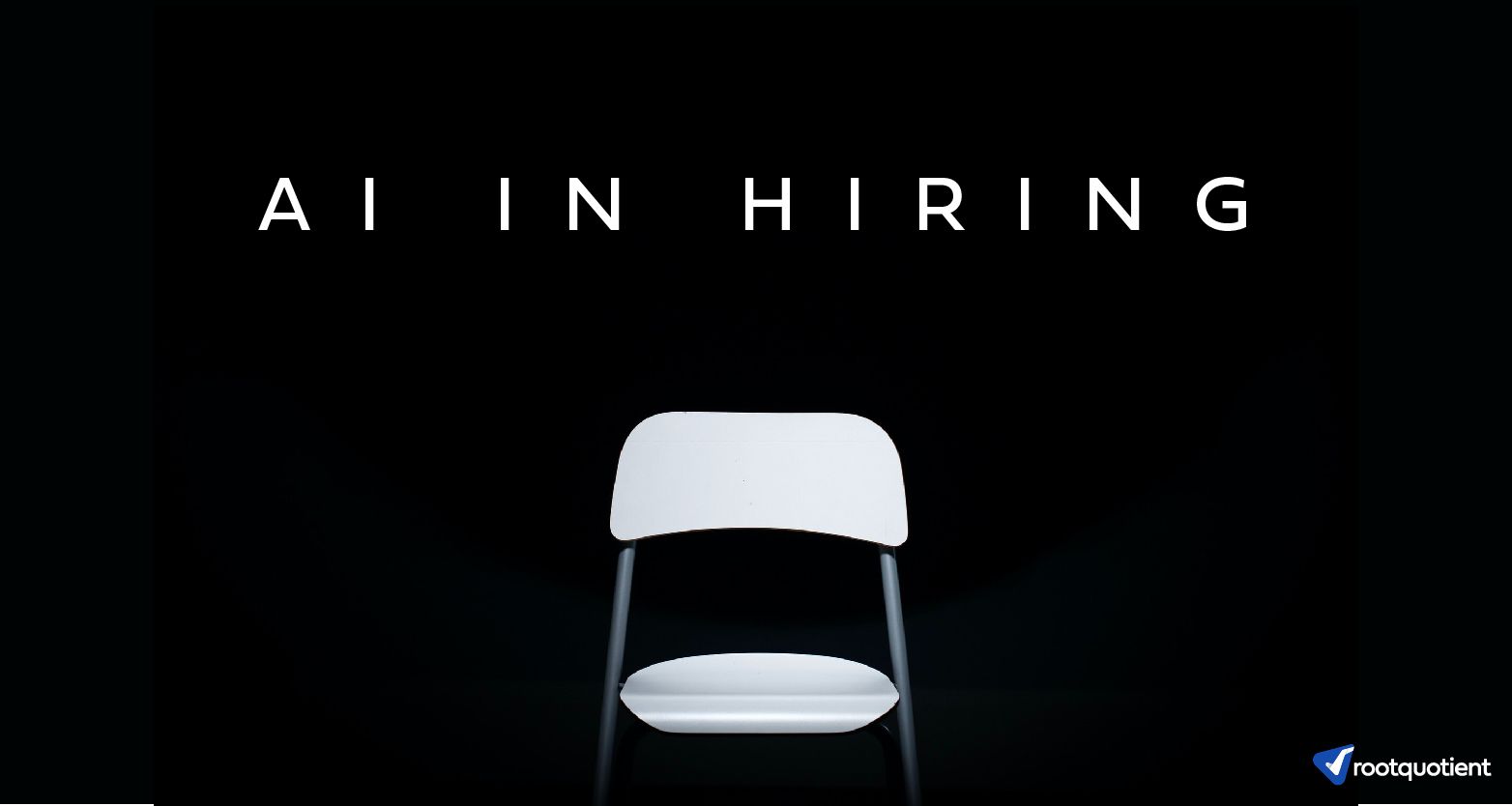As we enter the realm of Artificial Intelligence playing major roles in any given platform, hiring the right human resources suitable for a given job is the latest arena it is looking to enter. Though AI hasn’t been completely involved in the hiring process, it is used predominantly at the beginning stages of hiring. From deciding which ad appears to a person to shortlisting the perfectly fitting resumes, AI helps to filter the right resources before the actual interviews begin, saving humans the most tedious task of resource selection. Where does AI stand-in recruitment today? Is it the ultimate solution to let humans focus on more face-to-face interaction than spend time in pre-selection filtering? How does one ensure unbiased selection by AI? These looming questions surround this area of application of AI even before it has been employed full-fledged in the industry. It could only insist on the importance of its presence and how valuable of addition it would be in recruiting.
How Artificial Intelligence helps in Hiring
AI has always been known for making human lives easier. It is no different in the recruiting business. The following are some of the current areas where AI has been employed successfully.
Strategic inclusion of more talents
With hundreds and thousands of applicants for one job role in a firm, humans tend to swiftly scan through applications, thereby leaving more chances of missing some crucial details or being unable to keenly look into every one of them. A machine can never have too much work. AI ensures any amount of applications are skimmed through carefully and selection of suitable candidates becomes more prominent and foolproof.70% of the recruiters also agree with the fact that this reduces their burden, eventually making them more productive in actual interviews and direct interactions with the candidates.
Identifying passive candidates
Platforms like LinkedIn and other online career boards carry numerous profiles that do not directly reach the organizations. Social media platforms, agency databases remain untapped by humans, considering the sheer amount of data to go through and reaching out to potential candidates. Regular updating of data into the AI systems would identify the right persons to show their ads, reaching more than just a selected talent pool via traditional advertising.98% of recruiters agree that passive candidates prove to have the strongest impact. Platforms like Ideal, Gloat, Paradox, Textrecruit are some of the AI platforms succeeding in this arena.
Reducing bias
44% of candidates all over the world have reported experiencing bias in the recruiting system. AI looks at only the profile strength and suitability of the candidate by the fed data. Chances of bias in this system look grim. Diversity and inclusivity inside organizations reveal a lot about the organization itself and the attitude of the employers towards the employees. It’s better left to technology to resolve this impending issue.
Better engagement with candidates
A candidate need not wait for a day or two for clarification, responses and results. AI can involve immediate responses to all the candidates, thereby reducing human labour and keeping the target set of people engaged in the right way. They prove to be an extended version of a chatbox for businesses.
To know other innovative areas of AI employment, Read our blog titled Future of Esports with AI.
Challenges in using AI for Hiring
Humungous data requirement
For a machine to identify patterns, loads of data have to be fed into the system. A specific job role might need updating thousands of resumes for the AI to understand the exact requirement and suitability for that profile. This has to be repeated for every profile the organization is looking to fill through the course, which is not an easy feat to achieve. This also means a longer duration for accuracy. The more data to be fed, the longer the time.
Are they always bias-free?
Ultimately, it is humans who feed data into the system. An existing bias in the recruitment by humans might result in feeding similar profiles in the data and therefore the machine learns human biases. To make this a foolproof system in terms of diversity, AI has to be fed data to make it aware of biases and look through the profiles more carefully than humans. Will all human recruiters enable AI for this? This remains to be answered in the years to come.
AI is only descriptive
As of now, AI in hiring has only been descriptive – which means it cannot predict a candidate’s performance based on the available data. The next step would be to reduce the amount of scrutiny humans have to do after the shortlisting of candidates. However, it is still in the beginning stages where it can only work on matching the profiles and the requirements.
Human skepticism
The HR industry is bombarded with trends and constant rapid changes in the trends in any given field. In the initial stages of applying technology, humans are always skeptical about how good of a job AI can perform in identifying human skills. As in all technological advances, this might also take some time to prove itself to humans. The future looks bright with AI in the recruitment process. It reduces unnecessary human effort and lets them focus on actual problems at hand. However, one should remember that they are not replacing humans any time soon. A study states that 85% of jobs that will exist in 2030 are yet to be invented. This means technology is paving way for better places to use human minds.
AI can be implemented in the prediction of performances, scheduling interviews, employer branding, candidate experience, proactive sourcing from social media and other platforms, etc. However, the final step of human interaction should not be compromised at any cost. Ultimately, it is about understanding which skills are more valuable at a given point of time, even if AI takes over most of the recruitment process.
